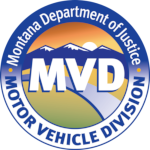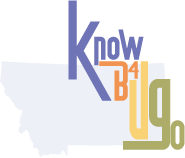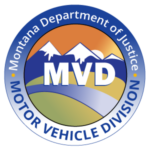These are general guidelines. When selling a motor vehicle, every situation will be unique. If you have a question about a specific circumstance, email [email protected] or call 406-444-3661.
Be Informed & Ask Questions
It is your responsibility to be an informed and educated consumer. Buying a vehicle is a big decision. Know about the vehicle you want to buy and take your time when making a decision. Make sure you are informed and comfortable with your decision before you approach a dealer or private seller.
Read everything thoroughly when signing paperwork and ask questions if you don’t understand all of it.
Buy within your means. When budgeting for a vehicle, consider the costs of maintenance and repairs.
Here are some helpful questions to ask when buying a car, motorcycle, or other vehicle from a private seller or dealership:
- Are you the owner of the vehicle? How long have you owned it?
- What is the vehicle’s mileage?
- How has the vehicle been driven (around town vs. long trips)?
- What major work have you done on the vehicle? Do you have receipts?
- Did you buy the vehicle new?
- Has the vehicle ever had rust problems?
- Has it ever been wrecked, had body repairs, or been repainted?
- Do you have the title?
- Are you a licensed vehicle dealer?
Buy From a Trustworthy Seller
If you would like to know if a dealer is legally licensed, you can email [email protected] or call the MVD’s Vehicle Services Bureau at 406-444-3661 option 3.
Selling a vehicle in Montana can be done only through a licensed dealer or by the person whose name is on the title. When a person tries to sell a vehicle that he or she doesn’t legally own (i.e., he or she is not listed on the title), it’s called curbstoning and it’s illegal. Buying from an illegal dealer will put you at risk. According to www.stopcurbstoning.com:
- Curbstoned vehicles may be lemons, salvaged, or even cobbled together from parts from the wrecking yard. They may have been written off as total losses by insurance companies due to collision, flood, or other damage.
- Sometimes, unethical used car dealers use curbstoning as a way to get rid of duds they can’t sell on their lots.
- Once you buy a curbstoned vehicle, you have nowhere to turn if the car develops problems.
Test Drives & Mechanics
It’s a good idea to test drive the vehicle on the kinds of roads you plan on using the most; for example, residential, rural, highways, or interstates.
Never buy a vehicle under the pressure that there is another buyer pending. Take your time and ask the seller if you can take the vehicle to an independent mechanic of your choice. There are costs involved in having this done, but paying a few dollars to determine that the vehicle is or is not what is being represented is worth it to avoid buying a vehicle and later finding out you made an expensive mistake.
Check for Liens Against the Vehicle
A lien can occur because the owner took out a loan to buy the vehicle and hasn’t fully repaid the bank, lending institution, or private party who loaned the money. Liens can also be placed on a vehicle when the owner fails to pay child support or for other reasons.
It’s critical to have the security interest/lien resolved before purchasing the vehicle because the lien holder could have a legal claim to your vehicle if the previous owner doesn’t pay the loan.
The names and addresses of any security interests/liens are listed on the front of the title in the section labeled “This vehicle/vessel is subject to the following security interest,” or a similar heading on out-of-state titles.
- You can find more information on the Vehicle Title Information page
- The vehicle owner (seller) could have paid the loan without getting a new title that shows there are no security interests. In this situation, the seller needs to provide you with a completed Release of Security Interest or Lien (MV37A).
Check the Vehicle’s History
If you are buying a used vehicle, getting a history report – which lists accidents and major repairs on a specific car or truck – is a good idea. You may even be able to convince the seller to provide the vehicle history as a courtesy. Most research databases charge a small fee, but diligent research before making a purchase on the second most expensive consumer item is well worth the price when it could save you hundreds of dollars in the future.
- The National Motor Vehicle Title Information System (NMVTIS) is a good source as an independent database. Most states report to NMVTIS, which is designed to protect customers from fraud and unsafe vehicles. An NMVTIS vehicle history report provides data on five key indicators associated with prevention of auto fraud and theft: current state of title and last title date; brand history (e.g., junk, flood, hail, etc.); odometer reading; total loss history; and, salvage history. http://www.vehiclehistory.gov/
- Other sources provide additional information on a vehicle. Common vendors are CARFAX® or AutoCheck®.
The MVD offers an online vehicle search service that allows users to search for and view vehicle record information including owner information, title history, and registration information for vehicles that are titled in Montana. This service also charges a fee.
Beware of Odometer & VIN Fraud
Note the odometer declaration (mileage) on the title and compare it to the vehicle’s odometer. The mileage must be disclosed on any vehicle newer than nine years. (The year is calculated by subtracting the model year of the vehicle from the current year.) Examine the title closely if the mileage notation seems obscured or is not easy to read.
Compare the mileage on the odometer with the mileage on the vehicle’s maintenance or inspection records. Search for oil change and maintenance stickers on windows or door frames, in the glove box, or under the hood.
Examine the tires. If the odometer on the car shows 20,000 miles or less, the vehicle usually should have the original tires.
Watch for any odometer change warning decals. Federal law requires that a warning decal be placed on the driver’s door opening on the vehicle body, between the upper and lower hinge area, reflecting any odometer changes that have taken place in the past.
Compare the vehicle identification number (VIN) on the title with the VIN on the vehicle. They must match.
The VIN is usually located in two places: on the inside edge of the driver’s door, and where the dashboard meets the windshield on the driver’s side.
Other VIN Resources:
https://www.nicb.org/theft_and_fraud_awareness/vincheck
The National Insurance Crime Bureau’s VINCheck is a free service provided to the public to assist in determining if a vehicle has been reported as stolen, but not recovered, or has been reported as a salvage vehicle by cooperating NICB members. A VIN is required to perform a search.
http://www.vehicleidentificationnumber.com/index.html
This site provides automobile history reports and information about VINs, deterring fraud and theft, and more.
Buy Insurance
When you’re ready to buy a vehicle, contact an insurance agent about purchasing motor vehicle liability insurance. Under state law, your vehicle must be insured. For more information, visit Insurance and Verification page.
Leave the License Plates with the Seller
When buying a used vehicle, the license plates must be removed by the seller. You must buy new license plates when you title and register your vehicle at the County Treasurer’s office in your county of residence.
- Since you won’t have license plates yet, you can obtain a 40-day temporary registration permit from the dealer or from a Montana County Treasurer’s office.
Keep a Written Record of Your Purchase
Keep documentation of the sale with the seller’s name and address as your record of the sale. A record of the sale can be either a photocopy of the reassigned title or a form or document that includes the year, make, VIN, name, address, driver license number, and signature of the person to whom the vehicle is sold and the purchase price and date of sale of the vehicle. For your convenience, you can use Bill of Sale (MV24).
More Help for Buying a Used Vehicle
For more information about what to be on the lookout for when buying a used vehicle, go online to:
- The Montana Department of Justice’s Consumer Protection website Vehicles and Lemon Law: https://dojmt.gov/consumer/vehicles-and-lemon-law/
A “lemon law” is a protection you have against purchasing a defective vehicle that is less than two years old and has 18,000 miles or less on the odometer. If the defects are the fault of the manufacturer and you have met certain requirements, then Montana law requires them to repair or replace the vehicle. However, it is important to keep in mind that the Montana lemon law does not apply to used vehicles.
- Purchasing a Used Vehicle: https://dojmt.gov/consumer/used-car-buying-guide/
- The National Motor Vehicle Title Information System (NMVTIS) Used Car Buying Tips: http://www.vehiclehistory.gov/nmvtis_buyingtips.html
Title Tips for Buying/Selling a Vehicle in Montana
These are general guidelines. When selling or buying a motor vehicle, every situation will be unique. If you have a question about a specific circumstance, email [email protected] or call 406-444-3661.






